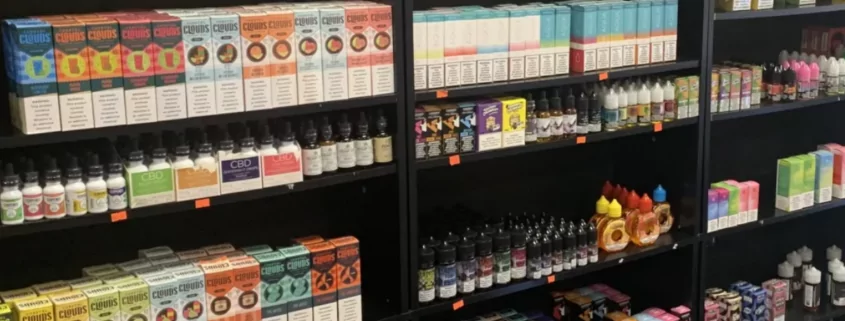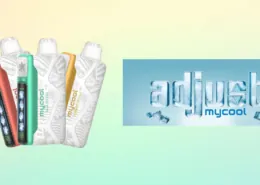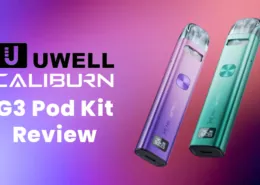Guide to Selling Vape Products Legally in the UK
In recent years, the vaping industry in the UK has witnessed a dramatic upswing. The influx of an array of new products on the market has led to confusion among retailers, particularly in understanding what they can and cannot sell legally.
Recognizing this widespread uncertainty, the United Kingdom Vaping Industry Association (UKVIA) has stepped up to create an authoritative guide to selling disposable vape products within the parameters of the law. In this article, we’ll break down the intricacies of the UKVIA guide, providing you with a detailed blueprint to navigate the labyrinth of vaping product regulations.
The Key Threats to the Vape Industry
To begin with, it’s essential to identify the most significant hazard to the vaping industry – high-capacity, high-nicotine devices. These devices are the proverbial wolves in sheep’s clothing; they appear no different from regular devices but carry a much higher potential for harm due to the high nicotine content.
Ecigator’s Managing Director, Matthwe Ma, asserts, “As a general rule, if a disposable device has a ‘puff’ capacity greater than 600 or contains more than 20mg/ml of nicotine, it is undeniably illegal to sell in the UK.” The ‘Geek Bar Pro’, a device flaunting a puff capacity of 1600 and a staggering 50mg of nicotine, exemplifies this issue.
Decoding the Regulations
To ensure legal compliance, retailers must stay aware of the stringent regulations governing vaping devices containing nicotine. Here are the two key stipulations to keep in mind:
- Nicotine – The nicotine content in any vaping product, irrespective of its form or type, must not exceed 20mg/ml (2%).
- Capacity – Vape devices, including the disposables, should neither contain nor be refillable with more than 2ml of e-liquid.
These restrictions aim to strike a balance between maintaining consumer choice and safeguarding public health.
Read more:
Unravelling the ECID Number Myth
Many suppliers insist that an ECID number is all you need to sell disposable vape products legally. However, this is a common misconception. An ECID number, although issued by the manufacturer, carries no legal validity until the product is listed by the Medicines and Healthcare products Regulatory Agency (MHRA).
The Consequences of Non-Compliance
The repercussions of selling non-compliant products are not to be taken lightly. Companies found guilty of such breaches can face prosecution, risk having their entire stock confiscated, and may also be slapped with hefty fines – up to £5,000 per instance. Such strict legal enforcement underscores the gravity of ensuring compliance.
Ensuring Legal Compliance
The MHRA serves as the competent authority for the notification scheme for e-cigarettes and refill containers in Great Britain and Northern Ireland. They diligently maintain and publish lists of products that have been notified and approved after a thorough evaluation of submissions from manufacturers.
Anyone can access the MHRA list, making it a critical resource for verifying a product’s legality before purchase or sale. If a product doesn’t appear on this list, it is categorically illegal for sale, even if it complies with the ECID, puff, and nicotine restrictions.
Following MHRA Guidance to the Letter
The MHRA has issued specific guidelines for supplying new e-cigarette products post-January 2021. These directives require notifying the products via the respective notification systems for Great Britain and Northern Ireland. After the MHRA assesses and publishes the product notification, it is deemed legal for sale in the notified region.
It’s worth noting, though, that suppliers often claim their products have been notified but are not yet listed on the MHRA’s website. In such cases, it’s advisable to wait for the MHRA listing before making any sales.
Anyone can check the MHRA list as it is public https://cms.mhra.gov.uk/ecig checking recent submissions is relatively simple just type in the brand name or if known the ECID. There are however two legacy lists that you will also need to check https://cms.mhra.gov.uk/ecig-old-submission.
Sidebottom underscores the importance of diligently checking products’ legality. He suggests asking the supplier for the ECID, the MHRA invoice, and proof of payment before looking them up. It might seem like an arduous process, but the peace of mind it offers is worth the effort.
Riding the Vape Wave
Vaping has undeniably gained traction as a popular alternative to smoking, and retailers are keen to ride this wave. However, it’s crucial to remember that selling vape products entails stringent legal obligations. Retailers must tread carefully, ensuring that they adhere to the established regulations to maintain the integrity of the vaping industry and protect consumers.
- Malaysia Negeri Sembilan Backs Vape Ban, Awaits Clear Laws - August 5, 2025
- Is It Illegal to Vape or Smoke While Driving in Massachusetts? - August 5, 2025
- Austria Plans to Ban Disposable E-Cigarettes - August 5, 2025









